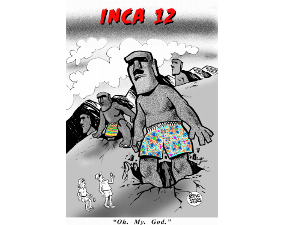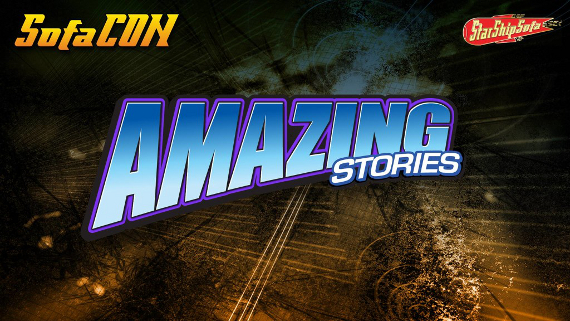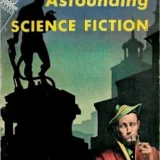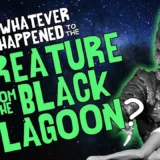
OBIR: Occasional Biased and Ignorant Reviews reflecting this reader’s opinion.

City of Sensors – by A. M. Todd
Publisher: Now or Never Publishing, Surrey, British Columbia, Canada , April 2022.
Premise:
Everybody disrespects the Data Police, but it is the privacy fanatics who want to kill them.
Review:
CITY OF SENSORS is A.M. Todd’s first novel. I like first novels. I’ve been working on mine for more than fifty years. You could say I’m an expert on first novels.
Writing a first novel is essentially a matter of answering questions. First question: what kind of novel should I write? Todd has chosen to write a science fiction crime detective novel. That takes guts. A cross genre is, in a sense, twice as difficult to write as a single genre novel. You have to get both genres right or else it doesn’t work.
Second question: What sort of crime detective fiction? Given the grim and moody atmosphere involving dark alleys, seedy characters and even seedier nightclubs, I’d say a Film Noir novel, one with a hard boiled ambience that works equally well as a book or a movie. Think “Maltese Falcon.”
That in turn answers the third question: what species of detective? Think Sam Spade, or in this case, Frank Southwood. He’s a tough egg all right. Fits the stereotype. Bit of a loser. Sticks his nose too far. Cynical but heart of gold though he hates to admit it. You know the type.
Except that you don’t. Frank is a tough egg but his real name is Humpty Dumpty. Born loser with a capital L. Thinks he’s brilliant because the last batch of thugs beating him up failed to kill him. A white collar crime specialist who prefers to go slumming in the deepest, darkest, dankest places he can find despite both his boss and the law telling him not to. Bit of a nutbar really, a masochist on a binge. His obsessions remind me of certain security guards whose biggest wet dream is to become an actual cop. Frank fancies himself a hard core homicide investigator but, emotionally at least, walks around with a sandwich sign reading “Kick me, or better yet, kill me.” Not surprising no one wants to be his partner.
In other words Todd has done what writers are supposed to do, pick a genre character and go against the stereotype by adding complexity and original touches so as to confound the expectations of the reader. This can involve minor matters, Frank being extremely fastidious and a germophobe, to truly bizarre habits which make him quite unique. For example, the great love of his life was a drug addict and thief who’d rob him blind every time she stayed over for the night. His solution? Replace all the goods by the next tryst so she’d have a fresh lot to steal and maintain her habit. That’s thoughtful and loving I’d say, if a tad unusual. Not only thinks but feels outside the box.
Frank’s biggest obsession is with detail. His desk job involves processing enormous amounts of data, so he suits his job and it suits him. But having an eye for detail is a problem. He’s so good at it he can’t see the forest for the trees. He sees so much that he is rendered blind and misses the obvious. Pity, because the obvious is the very thing he is looking for.
Last but not least, he has a welfare mentality when it comes to money. You have to spend money as fast as possible before it runs out, so he does. He’s an impulse shopper. Psychologically, spending money is proof you have money. Therefore, the more you spend, the more money you have. Can you spot the logic fallacy? He has an extreme eye for detail, so of course he can’t. He depends on emotional rationalization more than logical thinking. He may be a tough egg, but he’s also an idiot. Or, at any rate, self-destructive as all get out, even though he believes he’s perpetually on the verge of triumph. There are, of course, reasons why Frank is the way he is. They are gradually revealed in the course of the novel. Within the context, Frank’s complexity is not only understandable but inevitable. Stereotype he isn’t.
The real question becomes, is this hapless character someone the reader can relate to? I think so. We all have dreams. We’ve all experienced failure. We, all of us, have experienced the advantages and disadvantages of rationalization at first hand. As a result the reader finds it easy to root for Frank. Not only because “there but for the grace of God go I,” but also “Son of a gun, I know just what he’s going through because…” etc. etc. Yeah, we can identify with Frank, can identify with him stumbling through life not quite the way he anticipated. We’ve all done it. Most of us continue to do it. There’s a bit of Frank in all of us.
Now we come to the science fiction aspect of the novel. Something of an alternate world taking place in the near future. People smoke and drink a great deal, which adds to the old-fashioned Film Noir ambience. But the novel is really about today’s trends made more visible and intrusive. We all know the internet is a hugely profitable data farm, with assorted corporate entities figuring out our likes and dislikes, our personal preferences, and selling the information to other corporate entities who want us to buy their products. Then there are governments and criminal elements who mine the same data for reasons of their own. And, according to assorted paranoid conspiracy theories, more sinister elements involved. A far cry from the original utopian vision that the free dissemination of knowledge would bring freedom and progress for all. They forgot the “Monster from the Id,” i.e. the distribution of disinformation and its consequences. We know all this, but tend to ignore it. Easier to be content that way.
Point is this novel renders the commercial aspects of our contemporary reality more blatant. Every person is tracked at all times. Every storefront advert recognises you as you approach and tailors its message to your personal needs, even calling out to you by name. Not only that, miniature floating robots will follow you demanding you buy what they are offering. One swipe of your hand and the cost is instantly deducted from your electronic bank account and another robot shows up within seconds to hand you the product. Impulse buying couldn’t be easier. Like everyone else, Frank is addicted to the practice. Only, in his case, his handwipe is often declined. Like many people today, he tends to outspend his line of credit. Think about it. What’s more annoying than to be hounded by adverts for things you can’t afford? Why, not being able to buy anything. That is the worst social sin of all. Call yourself a consumer? Hah! Frank has fallen away from the norm. He’s useless at keeping to a budget.
At least he remains employed. Frank is a Data cop. He works for Sentrac, a private outfit which has a monopoly on analysing data to determine criminal activity be it tax avoidance or money laundering. This is a big deal, a very big deal, because actual money has been outlawed and all “money” is strictly electronic data. Anyone who dares to manipulate that data has vast potential for mischief. It’s the top priority security problem for all governments and corporations. Data criminals are the number one criminals to be caught and thwarted. Mere murderers are strictly tabloid entertainment, or were, until someone begins murdering Data cops. For Frank this is personal. How dare someone treat his co-workers the way the world treats him? Subliminally at least, a chance for redemption and revenge.
The people murdering Data cops are the bad guys, or so Frank assumes. But from the reader’s point of view, he is also a villain. When you consider that the results of data mining as shown in this novel reflect our worst fears, does not his defending that very process, exaggerated for the sake of futurist fiction though it may be, imply he is fundamentally immoral? Or perhaps I should say, amoral? Is he not a prying eye and an enforcer for the entity which has banished privacy and made slaves of us? Should we not despise him? For the same reasons that make him a priority target for the privacy fanatics?
We know it’s those damn algorithms that data mine and compile and harass us when ever we go online or communicate with our devices. Symbolically at least, Frank Southwood is a walking, talking algorithm, a personification of the biggest threat or virtue of modern technology (depending on your point of view). As such a rather fascinating character. One whose doom comes from too much introspection. And awareness of too much detail.
The privacy fanatics are indeed out to get him, but not in the way he thinks. Something far worse. And they’re not alone. You could say everybody is out to get him. For reasons beyond his control, or ken for that matter. He thinks he has the big picture, and the final revelation is a matter of final detail. He’s wrong. He hasn’t got a clue.
The plot is about murder, and drugs, organized crime, futile love and fear of betrayal. Frank wants everything neat and tidy, figures he’s the man to deliver, hopes to wrap all his problems, both private and professional, in a beautiful package with a pretty ribbon. In fact he’s just a pawn. Everybody’s pawn. Fate’s pawn. It sucks to be Frank.
But Frank doesn’t know that. Or rather, he does, but he’s convinced he will win out in the end. So he keeps on plugging away even though he is his own worst enemy. Something’s bound to go right eventually. Even if he prefers the failure he knows rather than the unknown perils offered by unexpected success. He’s not convinced he deserves to succeed, and yet… and yet… he keeps on trying even though assorted well-rounded characters keep putting obstacles in his path.
When you get right down to the nitty gritty the book asks the question: Is the system we live with today worth preserving?
Frank is the living embodiment of our current cultural values in terms of economics and personal morality. Do we want him to change, to transform, or simply cope and survive? What do we want for Frank? What do we want for ourselves? What do we want our future to be like?
Yeah, the book is about Frank. But really it’s about us. About things we need to think about.
CONCLUSION:
So, yes, this is a successful cross genre novel. The science fiction aspects provide the larger picture, and the near-claustrophobic crime detective focus brings it close and personal. I can’t say that the character Frank is likeable, but his helpless thrashing about in an effort to understand what is going on certainly resonates. He’s a hard luck Harry kind of guy, full of intriguing rationalizations that are disturbingly familiar. Can’t help but follow along with keen empathetic interest.
In many ways the mood is grim and dark, as befits a Film Noir approach, but Frank’s quest for the light at the end of the tunnel illuminates his path and our hopes for him. It’s not light entertainment, and might be too bleak for some, but I found it intriguing, fascinating, and addictive.
Pretty damn good for a first novel if you ask me. I should be so lucky with mine, which I’ll probably publish sometime in the next fifty years or so.
City of Sensors due to be published any day now. It can be pre-ordered here: < City of Sensors >








